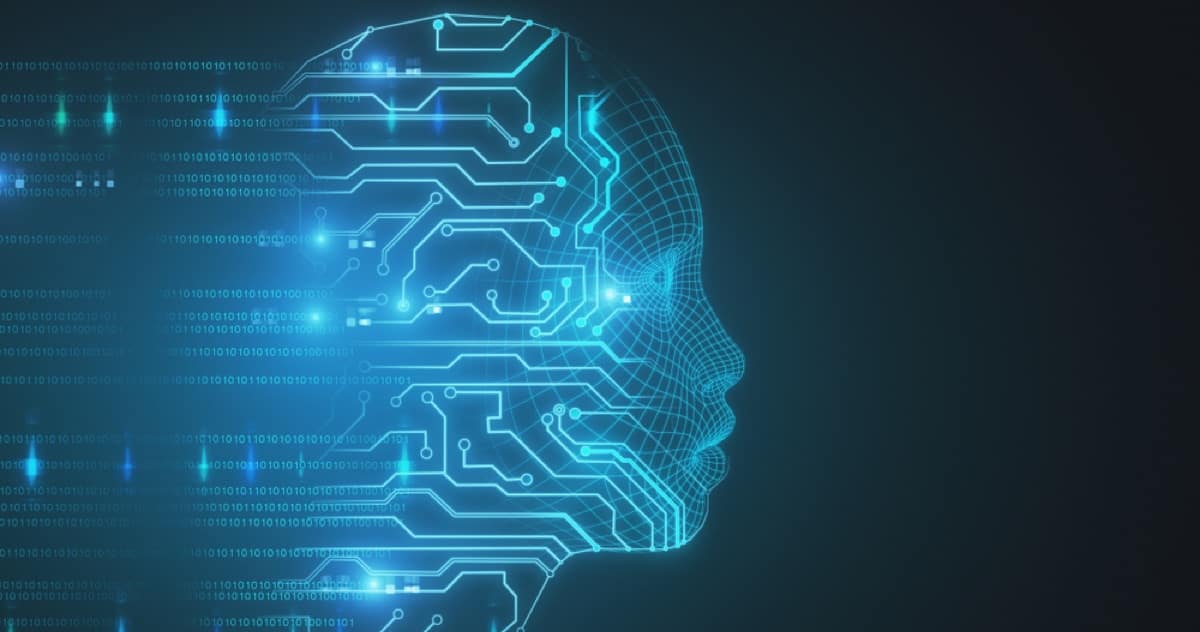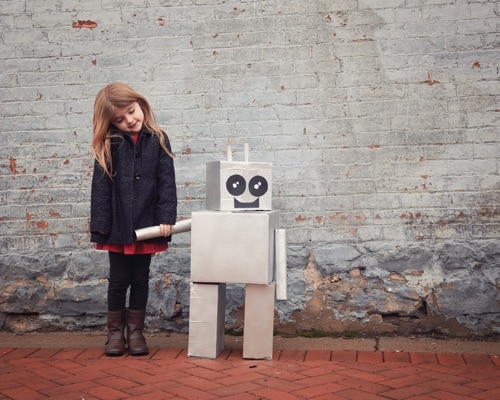When Artificial Intelligence Becomes Human Intelligence, Look Out
I discovered two extraordinary articles this week. They discuss artificial intelligence (AI) in-depth and in ways you’ve never thought about. They’re simply fantastic, and they’re must reading for the modern, AI tech-savvy reader.

- Medium – “Artificial Intelligence — The Revolution Hasn’t Happened Yet,” by Dr. Michael Jordan, UC Berkeley.
- Smithsonian – “What Will Our Society Look Like When Artificial Intelligence Is Everywhere?” by Stephan Talty.
Dr. Jordan is a Professor in the Department of Electrical Engineering and Computer Sciences and the Department of Statistics at UC Berkeley. His opening paragraph sets the stage.
Artificial Intelligence (AI) is the mantra of the current era. The phrase is intoned by technologists, academicians, journalists and venture capitalists alike. As with many phrases that cross over from technical academic fields into general circulation, there is significant misunderstanding accompanying the use of the phrase. But this is not the classical case of the public not understanding the scientists — here the scientists are often as befuddled as the public.
Immediately, he tells an interesting story about his wife’s pregnancy, statistics, and a life or death decision with machines. But this personal preamble is simply a gateway into a discussion of the various levels of machine intelligence. Is it software that can learn a human’s needs and habits? Is it like IBM’s Watson that can digest vast volumes of literature and draw new inferences? Is it software that merely augments our own intelligence? Is it a HAL-9000 device that can merely pass the Turning test? And kill? Or is it a full-fledged human-like intelligence that has every capability of the human mind and then goes beyond that?
This article is a very complete and well-thought-out discussion and worth your time.
The Consequences of Artificial Intelligence
The second essay, from the Smithsonian Magazine, explores the social consequences of very advanced AI entities. In a virtual SciFi epic panorama, the article imagines what it will be like when each of us has a superior, human-like, all-knowing AI at our disposal.
Your AI helps with every aspect of your life. It remembers every conversation you ever had, every invention you ever sketched on a napkin, every business meeting you ever attended. It’s also familiar with millions of other people’s inventions—it has scanned patent filings going back hundreds of years—and it has read every business book written since Ben Franklin’s time. When you bring up a new idea for your business, your AI instantly cross-references it with ideas that were introduced at a conference in Singapore or Dubai just minutes ago. It’s like having a team of geniuses—Einstein for physics, Steve Jobs for business—at your beck and call.
There are many more of these possible scenarios, ranging from modern partner-finding, health and longevity, and AI-assisted governments making decisions that are good for the citizens, not the law-makers. Or maybe not.
Privacy died around 2060. It’s impossible to tell what is true and what isn’t. When the government owns the AI, it can hack into every part of your existence. The calls you receive could be your Aunt Jackie phoning to chat about the weather or a state bot wanting to plumb your true thoughts about the Great Leader.
Together, these two articles create a detailed understanding of AI principles, terminology, future capabilities and the social consequences. Imagine….

Sorry. My AI says ‘nope.’
No, she’s not right for you. I’ve connected with her AI, and you each have vastly different values. If you mate with her, her AI and I will punish you. Move on.
Where we go with AI, once it matures, will quite likely be out of our control. This is called The Singularity. There is, right now, no known social mechanism to control it. Humans may not be smart enough.
Next Page: The News Debris for the week of April 16th. A personal Facebook AI?
Page 2 – News Debris For The Week of April 16th
A Personal Facebook AI?

The companions will seem so cuddly at first.
• Alan Kay once said:
People who are really serious about software should make their own hardware.
And it looks like that’s what Facebook is about to do. “Facebook Is Forming a Team to Design Its Own Chips.”
[Facebook ‘Forming Team’ to Design Its Own Processors]
Like Han Solo, I have a bad feeling about this. It’s one thing to have an app on your Apple-made iPhone that can be deleted. It’s quite another when the very, very essence of a company is instantiated in the hardware we use. Mark Gurman, however, points out:
The postings didn’t make it clear what kind of use Facebook wants to put the chips to other than the broad umbrella of artificial intelligence. A job listing references “expertise to build custom solutions targeted at multiple verticals including AI/ML,” indicating that the chip work could focus on a processor for artificial intelligence tasks.
But I recall once upon a time Mark Zuckerberg wanted Facebook to make its own smartphone. I have a feeling that new hardware, new devices, new AI initiatives are leading to that Singularity referenced in the preamble on page one. Just think what it’ll be like when you have a Facebook AI in your pocket. Or on your head, wired into your brain. (Required by law, of course.) Oh wait. Erase that thought.
Related
More Debris
• Are you looking for a job with one of the tech giants? This article explores the language they use in their job listings. “The Most Commonly Used Words In Tech Giants’ Job Listings Will Make You Never Want To Work At A Tech Giant.” After looking at the commonly used phrases by giants like Amazon, Apple, Facebook, Google and Microsoft, the author asks:
‘Maniacal’? ‘Whatever it takes’? ‘Ruthlessly’? Are these job listings or character descriptions for Disney movie villains? Textio points out that these aggressive descriptors belie whatever claims companies may make about wanting to improve diversity.
Ouch.
• This next article is just one more data point in an emerging theme that I see. Customers in the market for a notebook computer used to be so enamored by the superiority of macOS/BSD UNIX over earlier versions of Windows that they’d give up a little on the ultimate performance and gain the beauty and craftsmanship of a MacBook/Air/Pro.

Thin? Nope. Touch Bar? Nope. Really, really fast? Yep.
Windows 10, however, has reached the point where the equation has flipped. Today, many technical anf creative professionals are willing to accept Windows 10, with very good security, in order to get top-notch hardware performance at decent prices. (Apple hardly ever talks about the capabilities of UNIX anymore.) This, in turn, has led to a new awakening by Apple regarding the technical needs of its customers. One example is the new, no-compromise iMac Pro.
However, the recent approach by Apple seems to be lagging on the MacBook Pro side, as evidenced by this survey cited by Tom’s Guide. “Apple’s Laptops Have Hit Rock Bottom.” I’m betting Apple will also turn this around. Soon, “Pro” will have real “Pro” punch for the MacBook Pro.
Particle Debris is a generally a mix of John Martellaro’s observations and opinions about a standout event or article of the week (preamble on page one) followed on page two by a discussion of articles that didn’t make the TMO headlines, the technical news debris. The column is published most every Friday except for holiday weeks.
0 Response to "When Artificial Intelligence Becomes Human Intelligence, Look Out"
Post a Comment